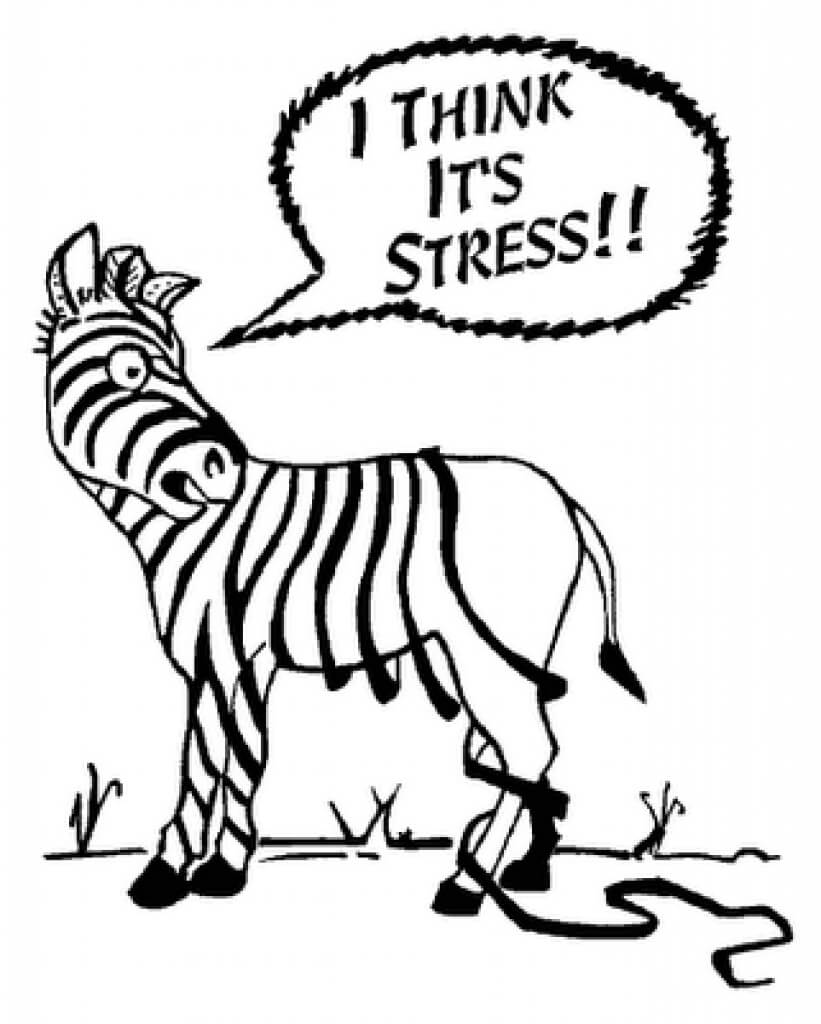Dealing with PhD stress
Here is the thing that no one really mentions when you are thinking about committing yourself to three years of research. Stress. I can’t remember anyone mentioning it to me when I first enquired about possible projects or during my first week of reading. Or maybe they did and I just ignored it. I can’t really remember. It all seems like such a blur but I do remember feeling stressed during the process. There was physical and emotional stress that I had go through, not just at the end when I was writing up the last few pieces of the thesis but throughout the whole thing.
But you know who gets the PhD? That big holy grail? The one who perseveres through all the times that things got rough and it ended in tears. Dealing with stress is one thing that you must overcome to finish the project and graduate. People probably won’t tell you about it at the beginning of your project but you will probably experience one or more of the following:
1. Feeling inadequate;
2. Unable to work hard enough;
3. Inability to focus;
4. Having no control;
5. Feeling like you aren’t getting anywhere;
6. Feeling like you can’t even cope with the easy things;
7. Fear of failure;
8. Imposter syndrome;
9. Mental exhaustion; and
10. Physical exhaustion.
The craziest thing about a PhD is that these feelings are ‘normal’. They are part of the PhD process and the constant feeling of swimming in a sea of nothing. The important thing is how we handle it. People handle it in different ways as the reason to begin, persevere and complete a PhD is subjective. However, it doesn’t mean that you should ignore these signs, particularly if the stress is becoming overwhelming as depression and anxiety is serious. Make sure you keep maintaining relationships with your friends and family so that you can discuss your concerns and feelings. Other students can be helpful here too as they are probably experiencing the same things with their own projects. You just have to remember that these feelings are temporary.
There are many ways to combat stress during the marathon that is the PhD project though. I spent a lot of time after hours playing with pets, spending time with family and friends and creating crafty things like knitting and sewing. Yoga was one of my favourite weekly pastimes and it helped to slow my mind down during the craziness of my thought process. A PhD involves a whole lot of thinking so allowing the mind to stop and relax each day is beneficial for running the marathon.
There were also ways of making myself feel like I was accomplishing something each day and week. I set myself goals each day so that I felt like I was getting somewhere and by the end of the week some sort of progress had been made that I could literally see. This type of organisation began after I had decided what my project questions were during the first six months. I knew my own limitations and with the guidance of my supervisor I set out to tackle one chapter at a time beginning with the literature review. I spent the first six months writing it and then I had one chapter at least in draft form that I could see and feel like I had accomplished something. The writing of this chapter helped to map out the rest of the thesis so then I felt less stressed about where it was going.
Another thing that helped was getting training in all the programs I needed to use including EndNote and asking for help if I needed it. The hardest thing to do is learning a new program whilst being on a time budget. I got help with R for statistics as this was the major stress for me. Coding is hard when you’ve never done it before and can result in a lot of hair pulling and crying at the end of the day. In order to reduce the stress here I attended a course and asked for help from my supervisor and other students. It’s really all about making networks that can help you when you’re stuck, whether it be with the technical side of things or emotionally.
I also made sure I took time to smell the roses. I scheduled breaks to visit my family and get away from my project by working in blocks. I spent two months or so putting in the hard yards or doing field work in a physically draining site and then went away to visit my family or on a holiday. This always kept me motivated and gave me a reward system that really works.
There are many things that can be done to reduce stress during the PhD process and these newly acquired skills can then be applied to work after the PhD. These skills are valuable for life.


0 comments